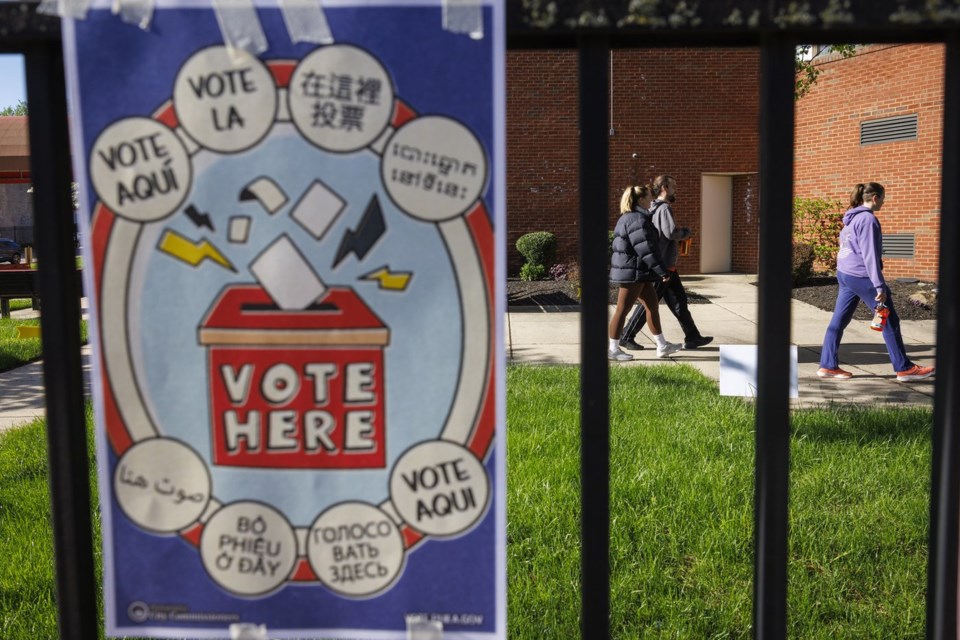HARRISBURG, Pa. (AP) — Voters hoping to open up Pennsylvania's closed primary system to independents asked the state Supreme Court on Tuesday to declare the current system violates the state constitution's right to free and fair elections.
Four independent voters asked the justices to take up the case directly, arguing that in many districts and in many races, including for the great majority of legislative seats, the primary elections among Republicans and Democrats are the only real contests, not the fall election. There are relatively few “swing” districts — in most parts of Pennsylvania, one party or the other predominates.
“Exclusion from primary elections is the functional equivalent of losing the right to vote in those districts,” they argued in a 51-page petition.
The Department of State was named as respondent to the lawsuit along with the commonwealth of Pennsylvania and Secretary of State Al Schmidt, who serves under Democratic Gov. Josh Shapiro. A department spokesperson said Tuesday that the lawsuit was being reviewed.
“It might be suggested that (the) petitioners have brought exclusion on themselves by choosing to not identify as members of a political party,” the four voters argued in the lawsuit. They said that ignores how the state constitution's Free and Equal Elections Clause “is designed to equalize voters' power regardless of their faction (or lack thereof) and regardless of their individual political-viewpoints.”
Jeremy Gruber, senior vice president with New York-based Open Primaries, a group that campaigns for more open primaries among the states, says Pennsylvania is among 14 states with closed primaries.
New Mexico this year passed a law allowing voters with no party affiliation to vote in primary elections without changing their nonpartisan status. Lawsuits are pending in Wyoming, Oregon and Maryland, Gruber said.
It's unclear when the Supreme Court will rule on the request that it take up the case directly. Three of its seven justices, all Democrats, face up-or-down statewide retention votes this fall, with voters deciding whether they should get additional 10-year terms.
When an open primary bill was passed in May by the Pennsylvania House State Government Committee, all Democrats were in favor and all Republicans opposed. It remains pending in the House.
“I've always said, the primary's not the election — the primary's the nomination,” House Republican Leader Jesse Topper of Bedford County said in the Capitol on Tuesday. Topper left the door slightly open on the topic, saying he is “always willing to give it a fresh set of eyes.”
The sponsor of the House bill, state Rep. Jared Solomon, a Philadelphia Democrat, said unaffiliated voters “pay into the system, prop up the election system and get zero in return, and no vote. It is not a partisan issue at all.”
Pennsylvania's nearly 8.9 million registered voters include some 3.8 million Democrats, 3.6 million Republicans and about 1.4 million others.
The four voters who sued are broadcaster and political commentator Michael Smerconish; grocery story owner Jeffery Doty; physical therapist Rachel Shanok; and David Thornburgh, son of former Republican Gov. Richard Thornburgh and head of Ballot PA Action, a group that advocates for open primaries.
Mark Scolforo, The Associated Press



